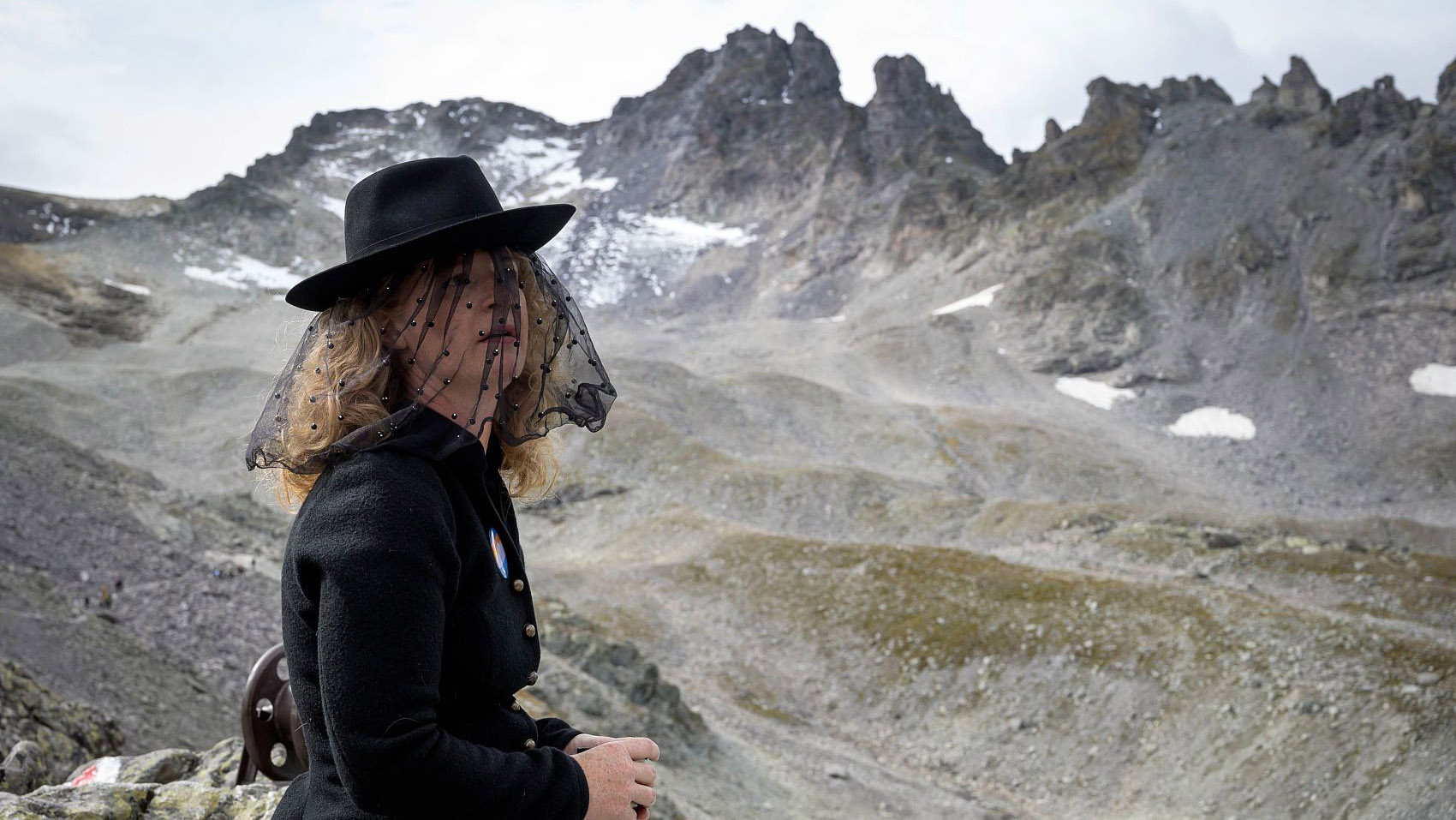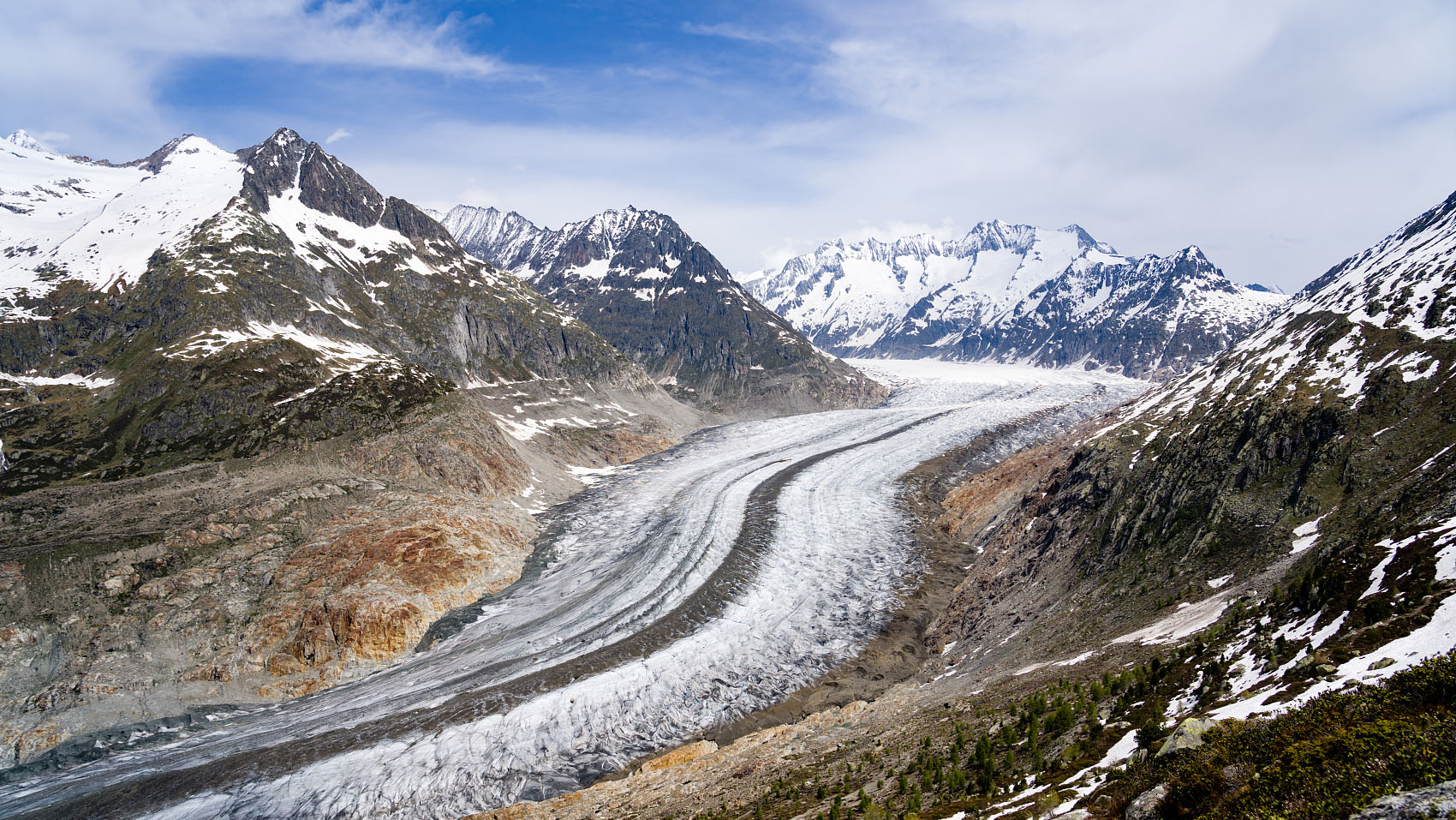From the vast grasslands of Africa, to the rigid plateaus in Asia; from the stretching coasts of South America, to the picturesque Europe, mountains weave through the earth's continents.
They are home of 15 percent of the world's population and a quarter of the world's land animals and plants.
They are the origin of 70 percent of the world's freshwater providing life to half of humanity.
Now, they are under increasing threat from climate change and over-exploitation.
As our planet gets warmer, the mountain residents are facing even greater struggles to survive. Mountain glaciers are melting at alarming rate, threatening millions of life downstream.

A woman takes part in a ceremony to mark the "death" of the Pizol glacier above Mels, eastern Switzerland, September 22, 2019.
A woman takes part in a ceremony to mark the "death" of the Pizol glacier above Mels, eastern Switzerland, September 22, 2019.
In late September this year, a Swiss glacier lost to global warming has been commemorated at a memorial service in the Alps.
Sadly, most of the glaciers around the world are retreating. The Aletsch Glacier, largest glacier in the Alps, is retreating at an unprecedented speed – 50 meters per year.
More than 500 Swiss glaciers have already vanished. The Swiss government says 90 percent of the remaining 1,500 will disappear by the end of the century if nothing is done to cut emissions.

The Aletsch Glacier in the Swiss Alps.
The Aletsch Glacier in the Swiss Alps.
In the hope of raising public awareness of the importance of mountains, the United Nation designated December 11 as the International Mountain Day in 2003.
As younger generations become more active in taking the lead to protect our planet, the 2019 theme "Mountains matter for youth" for the International Mountains Day brings more opportunities for young people to contribute more and do tailored research.
(Editor: Li Yunqi)
(If you want to contribute and have specific expertise, please contact us at nature@cgtn.com)